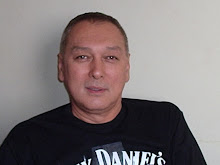Can I serve you now?
Jan 29th 2009 From The Economist print edition
American attitudes to stem-cell therapies are changing fast
Illustration by Stephen Jeffrey
FOR the past eight years, America’s government has declined to fund new research into one of the world’s most promising medical technologies: the use of human embryonic stem cells to repair or replace damaged tissue in the diseased and injured. Embryonic stem cells are special for two reasons, one scientific and one ethical. The scientific reason is that they are able to turn into any of the body’s myriad cell types, which is why they might be used in this way. The ethical reason is that, at the moment, harvesting them usually involves killing human embryos. The embryos in question have no future anyway (they are usually “spares” from in vitro fertilisation procedures). But it was this destruction of potential human life that disturbed George Bush and his supporters.
Barack Obama has promised to reverse the ban. When that happens, American academics will no longer have to watch enviously from the sidelines as their colleagues in Australia, Britain, China, the Czech Republic, Israel, Singapore and South Korea push ahead. But though the legislative wheels have yet to start turning, the mood has already shifted.
One sign of this shift came on January 23rd when the country’s Food and Drug Administration (FDA) granted permission for the first clinical trial of a therapy based on human embryonic stem cells to Geron, a firm based in Menlo Park, California. Geron was able to ask for permission, and the FDA was able to grant it, because the ban does not apply to privately financed research. America, it seems, is back in the stem-cell business
domingo, 22 de março de 2009
Assinar:
Postar comentários (Atom)

Nenhum comentário:
Postar um comentário